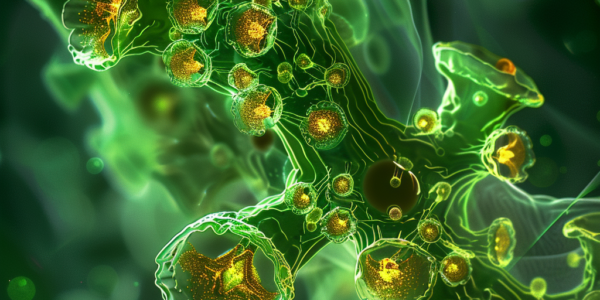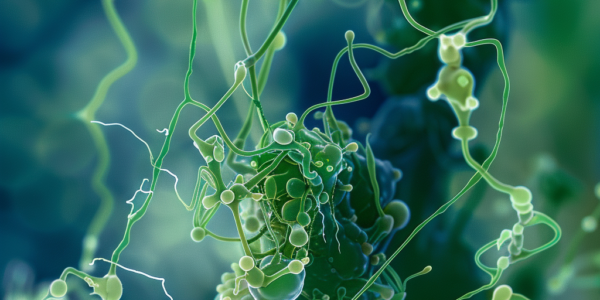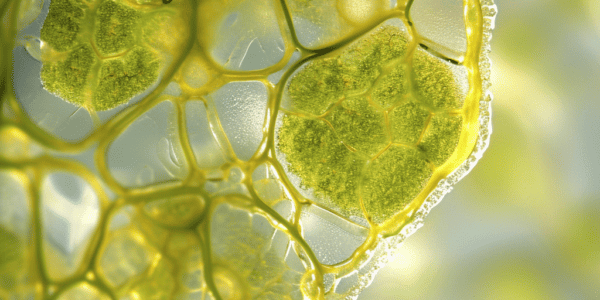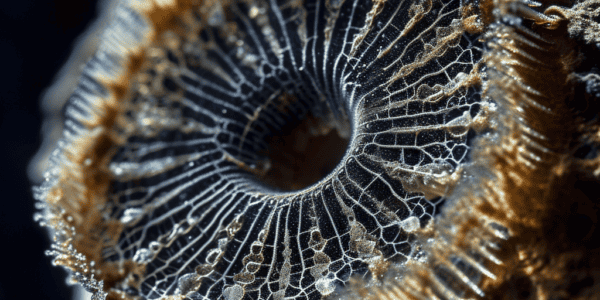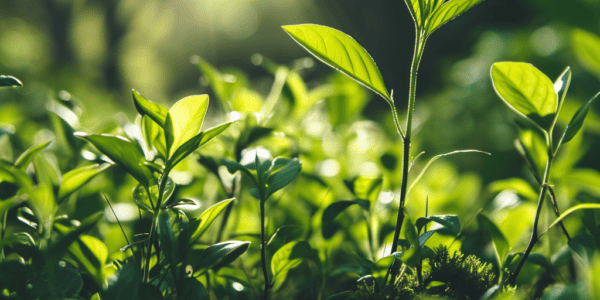New Research Uncovers Atomic Secrets of Photosynthesis
New research has uncovered the atomic secrets of photosynthesis, shedding light on the intricate process of chloroplast RNA polymerase transcription. This breakthrough offers potential for enhancing crop resilience and deepening our understanding of plant growth mechanisms. The study, published in Cell, not only presents a model but also provides resources to stimulate further fundamental discoveries in this field and support the long-term goal of developing more resilient crops.
University of Copenhagen Scientists Utilize Blue-Green Algae to Create Sustainable ‘Meat Fiber-Like’ Protein Strands
University of Copenhagen scientists have made a groundbreaking discovery in sustainable food production by utilizing blue-green algae to produce ‘meat fiber-like’ protein strands. This achievement could revolutionize the production of sustainable foods, providing the right texture with minimal processing. The research offers a promising solution to challenges in replicating the texture and mouthfeel of traditional animal-based foods in plant-based alternatives, and demonstrates the minimal processing required for maximum sustainability.
Revolutionary ‘Artificial Leaf’ Technology Converts Solar Energy into Hydrogen Fuel
Scientists have unveiled a revolutionary ‘artificial leaf’ technology that converts solar energy into hydrogen fuel through direct water splitting. This innovative approach offers enhanced efficiency, cost-effective production, and global implications for sustainable energy solutions. The use of recyclable materials and low-melting-point metals points to a cost-effective and scalable approach for manufacturing solar energy conversion devices, potentially revolutionizing energy systems worldwide.
Study Reveals Glitter’s Impact on Aquatic Plant Growth
Recent study reveals the concerning impact of glitter on aquatic plant growth, as the metal coating on glitter reduces the amount of light penetrating water bodies, impairing photosynthesis in the Large-flowered waterweed Egeria densa. Glitter, often made of microplastics and metals, is a common pollutant in rivers and seas, accumulating in aquatic environments. The research focused on the effects of glitter on E. densa, an important macrophyte native to South America, highlighting the potential harm that glitter can cause to aquatic plant life.
Study Shows Global Warming’s Impact on Forest Carbon Uptake
Forests are considered the most effective and abundantly available carbon sinks, capable of storing and sequestering millions of tonnes of carbon dioxide from the atmosphere. A new study from India joins emerging research that challenges this notion, showing that carbon…
Scientists Make Groundbreaking Discovery on Confined Microalgal Cell Growth in Photosynthetic Engineered Living Materials
Scientists from TU Delft have made a groundbreaking discovery on how confined microalgal cells can grow optimally in photosynthetic engineered living materials. These microalgae, using light energy, convert CO2 from the air into sugars, energy, and oxygen for their survival….
Ancient Euglenid Fossils Uncovered
If you ever find yourself playing a game of twenty questions, there’s a little-known life form you can pick that is sure to leave your opponent stumped. It is neither animal, vegetable, nor mineral. It’s not even a bacterium or…
Challenging the Misconception of Ocean Carbon Storage
In a recent opinion paper, Dr. Ivy Frenger and her international colleagues have challenged a common misconception in the field of ocean carbon storage. The Biological Carbon Pump (BCP), which plays a vital role in the Earth’s carbon cycle, is…
New Insights into Early Evolution of Cyanobacteria
Recent discoveries in the field of paleobiology have provided new insights into the early evolution of cyanobacteria and the emergence of oxygenic photosynthesis on Earth. A study published in Nature presents the oldest direct evidence of thylakoid membranes in ancient…
Revolutionizing Photosynthesis for Maximized Crop Yields
How Scientists are Revolutionizing Photosynthesis to Maximize Crop Yields Published: January 3, 2024 2.19pm CET Authors: Jonathan Menary – Postdoctoral Researcher, Centre for Tropical Medicine and Global Health, University of Oxford Sebastian Fuller – Researcher of Implementation Science, University of…

